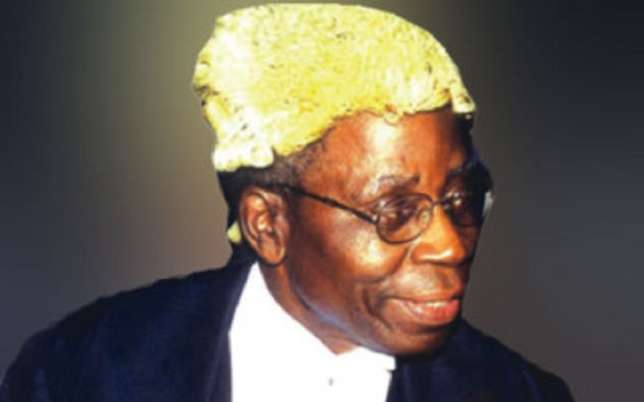
Over two decades after the assassination of Nigeria’s former Attorney General and Minister of Justice, Chief Bola Ige, fresh controversy has emerged as former Osun State Governor, Chief Bisi Akande, has claimed that former Oyo State Governor, Rashidi Ladoja, may have crucial information regarding the unresolved case.
Former Osun State Governor Chief Bisi Akande claims that ex-Oyo Governor Rashidi Ladoja may have crucial information about the assassination of Bola Ige in 2001.
Akande revealed that Ladoja withdrew the case filed by his predecessor, Lam Adesina, and suggested that he could provide further insights into the murder.
He also accused the Obasanjo administration of prioritizing political stability over justice and described Ige’s killing as a politically motivated state murder.
Ige was murdered on December 23, 2001, at his residence in Ibadan, Oyo State. Despite numerous investigations and arrests, justice remains elusive.
In a recent interview with broadcaster Edmund Obilo, Akande expressed regret over the lack of progress in the case, suggesting that Ladoja’s actions could have influenced the investigation.
“There are many things that die with people. I know Lam Adesina went to court over the matter, and I also know his successor, (Rashidi) Ladoja, withdrew the case.
Ask Ladoja; he would know more about Bola Ige’s death,” Akande said. At the time of Ige’s murder, Akande was the Chief Security Officer of Osun State, while the late Lam Adesina was Governor of Oyo State.
According to Akande, Adesina had initiated court proceedings concerning the case before leaving office in 2003. However, his successor, Ladoja, allegedly withdrew the case, a move Akande believes warrants further scrutiny.
“Lam Adesina was the Chief Security Officer of Oyo State, and he went to court. The governor who took over from him, Ladoja, withdrew the case from court. He might be able to tell you more.
I believe he has more information on Bola Ige’s death,” he reiterated. Akande lamented that certain key figures who could have shed light on the case, including Adesina, had passed away, leaving a gap in the quest for justice.
He also hinted at the reluctance of some individuals to speak openly about the circumstances surrounding Ige’s death.
Reflecting on Ige’s political career, Akande disclosed that Ige had deep regrets about joining former President Olusegun Obasanjo’s administration, referring to the move as a “kiss of death.”
He explained that despite Ige’s initial reluctance, he had been encouraged to accept a ministerial position by the leadership of Afenifere and the Alliance for Democracy (AD).
“I wouldn’t say it’s a mistake. We supported him in joining the government. Afenifere and the Alliance for Democracy made a collective decision to back him,” Akande stated.
He also revealed that Ige had contemplated resigning from Obasanjo’s government but was persuaded against it by close associates, including himself.
According to Akande, Ige had confided in him about plans to resign but was advised otherwise due to concerns over his safety.
“One evening, he just called me and said, ‘I’m going to resign from this government.’ I called his friend, Oluwole Rotimi, who advised me to talk him out of it, warning that if he resigned, he might not live long,”
Akande recalled. Ige was eventually reassigned from the Ministry of Power to the Ministry of Justice before his assassination.
Akande strongly suggested that Ige’s murder was politically motivated, accusing the Obasanjo administration of failing to show genuine interest in solving the case.
“He was killed in anticipation of what he might become in the future. It was a state murder. The government killed him. The government can kill anybody. Obasanjo wasn’t keen on investigating who killed Bola Ige but was more interested in maintaining stability for himself and his administration,” Akande alleged.
Credit: Legit






